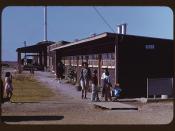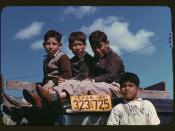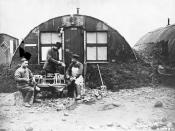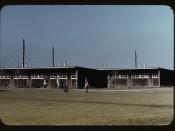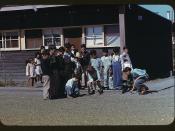Shukhov mentions this at the beginning of the book. This statement has a universal application at camps of this sort, where the prisoners must work everyday as their punishment. The work at a camp is intimately related to the prisoners' lives. The work reports are what are used to determine how much money should be allocated to each camp. This filters down to the prisoner's ration, which for a prisoner is his life. From a thorough analysis of the book, it is patent that they are many quirks to a labor camp. It is not really important how much work is done, rather how much work is recorded as being done.
If you interpret the word, "the knowing" to be people who paid you to work (for example a regular day job) and "a fool" to be for example an authority figure at the camp, then there is deep meaning in what Shukhov has said.
When you are being paid to something, there is a mutual relationship that is formed. Someone needs your excellent service, and you need his or her excellent pay. It is wrong for us not to give our total effort, if they are keeping their end of the bargain. However, it is different if you are being forced to work like the prisoners of this camp and not being reimbursed. Why give your 100%, if your receiving almost nothing in return? Sure, the prisoners at the camp must to do some work, or other wise they might be killed. But, if the prisoners are able to do less work, and fudge the numbers on the work report, why not do it? Shukhov is an aberration to this idea. He has a positive attitude toward his work. Shukhov finds a sort of autonomy through work because he is no longer working for the authorities; rather he is working for himself. However, this is not the case with many of the other squad members, and it because they have followed the philosophy of the quotation that they have survived this long. Because everyone followed Shukhov's ways, the majority would have worked themselves to death.

